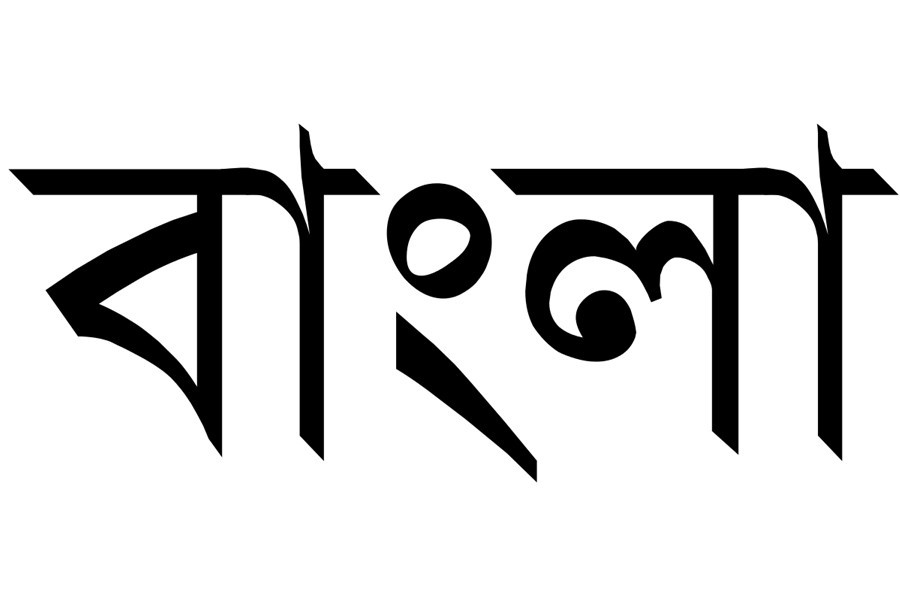No matter how much pride people take in Bangla language, heritage and culture, the reality is that the spirit of the mother tongue is gradually on the decline. In Bangladesh, the use of Bangla has not widened to all spheres of life. The language is mainly at ease with literature and some cultural activities as if it is not suitable for higher education and extensive communication.
Rabindranath Tagore once asserted that first we need the foundation of Bengali language, and then we have to start learning English or another language. The core idea of Tagore's assertion is that without having a strong foundation of mother tongue, it is very difficult to learn other languages. In today's Bangladesh, a section of people has, however, proved Tagore wrong! They are grooming their children in English bypassing Bangla. These boys and girls achieve a good command of English without having the basic skill of Bangla. The younger generations feel no shame for not knowing Bangla and not reading Bangla literature. Being well versed in English has put them in an advantageous position to compete with the rest of the world. But by ignoring Bangla, they have also slowly alienating themselves from their land and people.
Learning and mastering English may be essential. The global trend toward earning proficiency in English as a common second language has many advantages and cannot be reversed. However, the flawed method of learning doesn't help a large number of students. Many fail to learn English properly even after studying for 12 years---from class one to class twelve. They also don't learn Bangla very well enough. These are a simple waste of time, energy and money. Four to six years is enough to develop a solid basic foundation of a language. Twelve years should be sufficient to master all kind of communication in language learning.
Weakness in language, both in Bangla and English, has already turned a large section of people of the country vulnerable to cope with modern advancement. An unwanted sharp division has already emerged between English-oriented and Bengali-oriented students. It also intensifies social discrimination.
It isn't easy to comprehend why the country's leaders and policymakers have failed to turn Bangla into a langue of life and livelihood. Fifty years after the independence when Bangladesh has emerged as one of the fastest-growing economies globally, there is little attention to the economic value of Bangla language. Though it is the seventh most spoken language across the world and the fifth in terms of native speakers, it is nowhere when economic power is taken into consideration.
Another factor to ignore learning Bangla properly is the infiltration of Hindi movies and music. Be it a birthday or wedding party or a social gathering or reunion, Hindi music is a must. Enjoying Hindi movies has become one of the main entertainments also. In this process, a large section of people become psychologically tilted to Hindi-oriented cultural elements. While there is nothing to learn an influential global language like Hindi, the reality is different. Neither many of them are learning Hindi properly nor do they spend their valuable time to improve Bangla skill.
In such a situation, the observance of 21st February, the immortal Ekushey, has become an event of formality and festivity. The spirit of the great language movement in 1952, which ultimately led to the independence of Bangladesh in 1971, is now diminishing. A wholehearted effort made to establish the economic value of Bangla can only rekindle and uphold the spirit in the long run.


